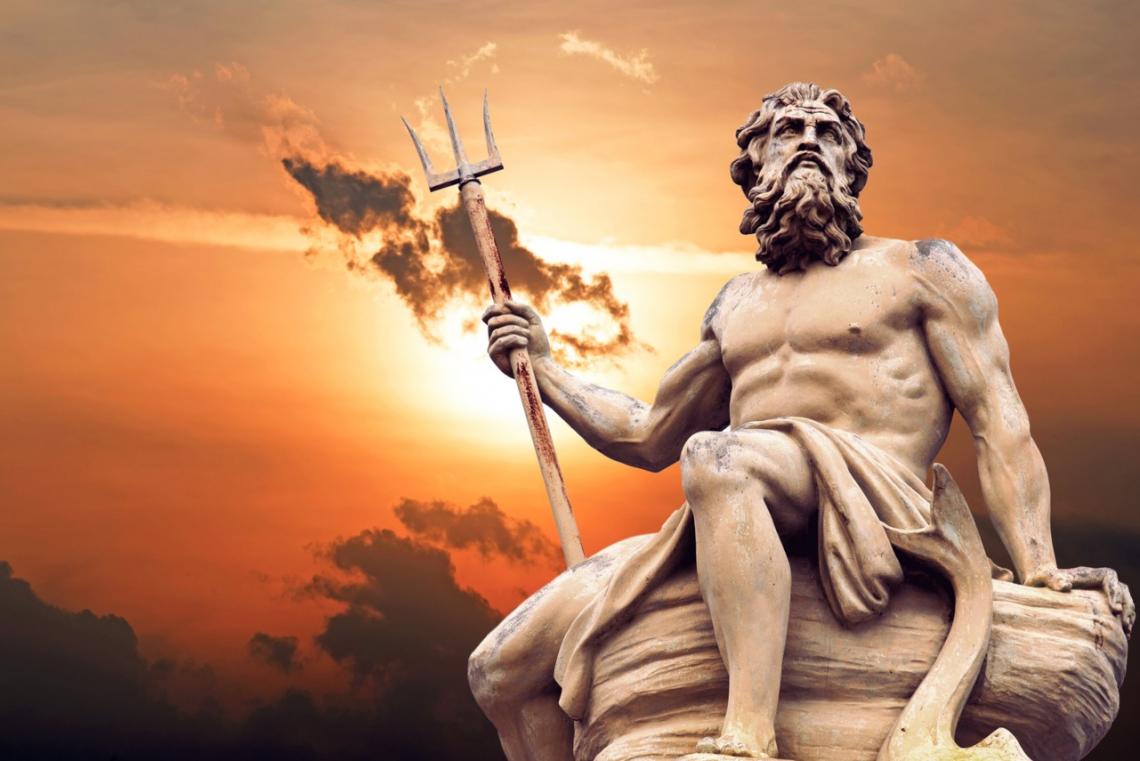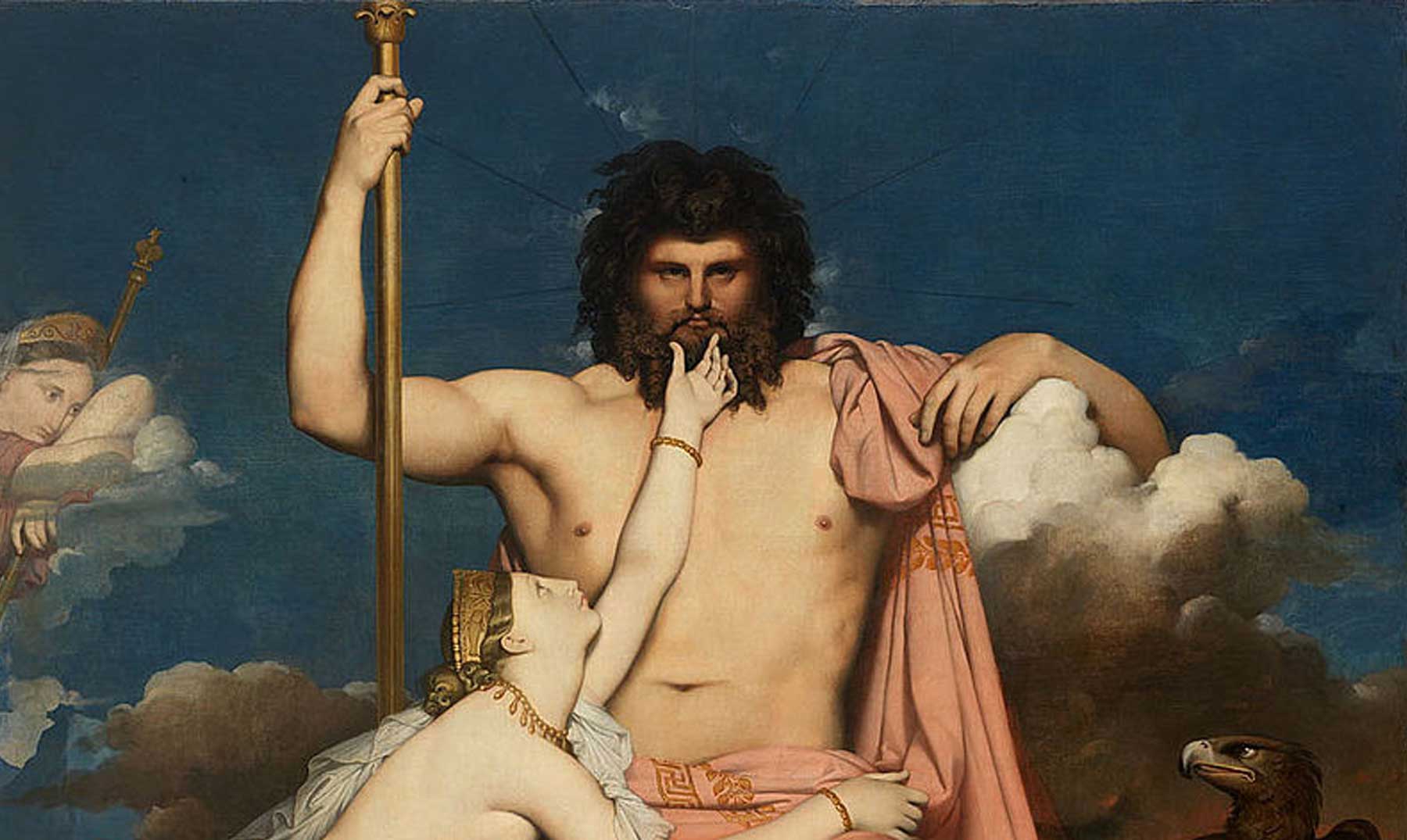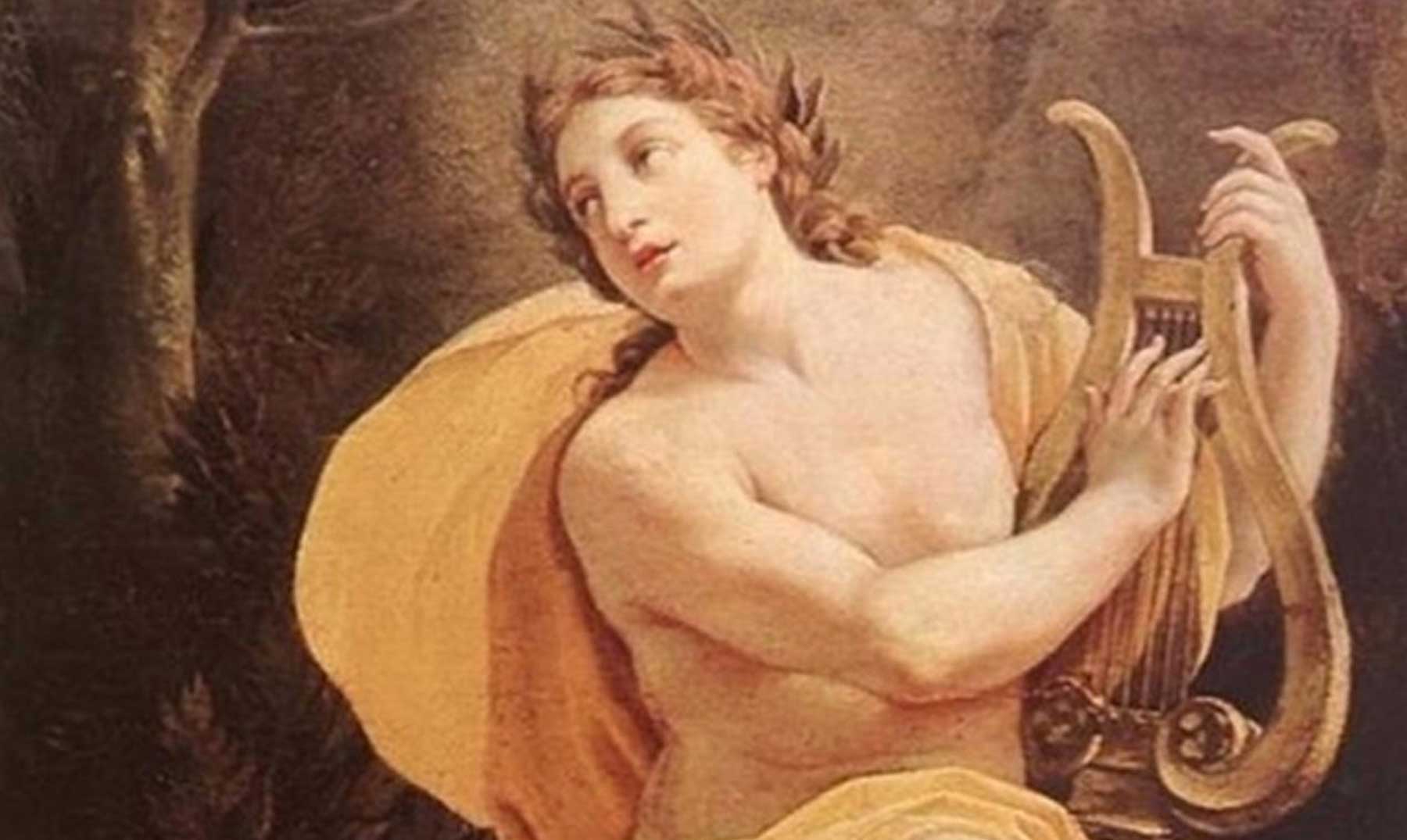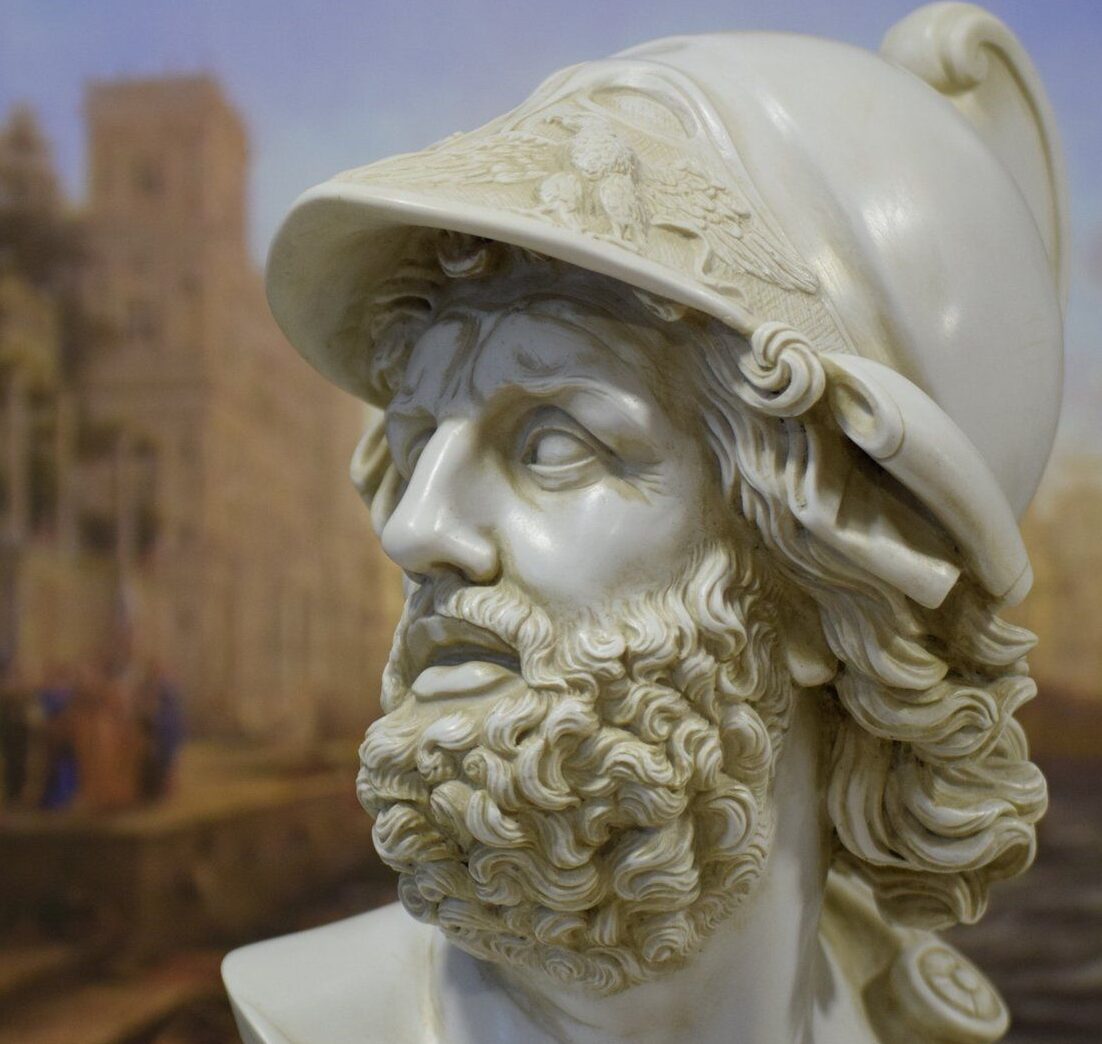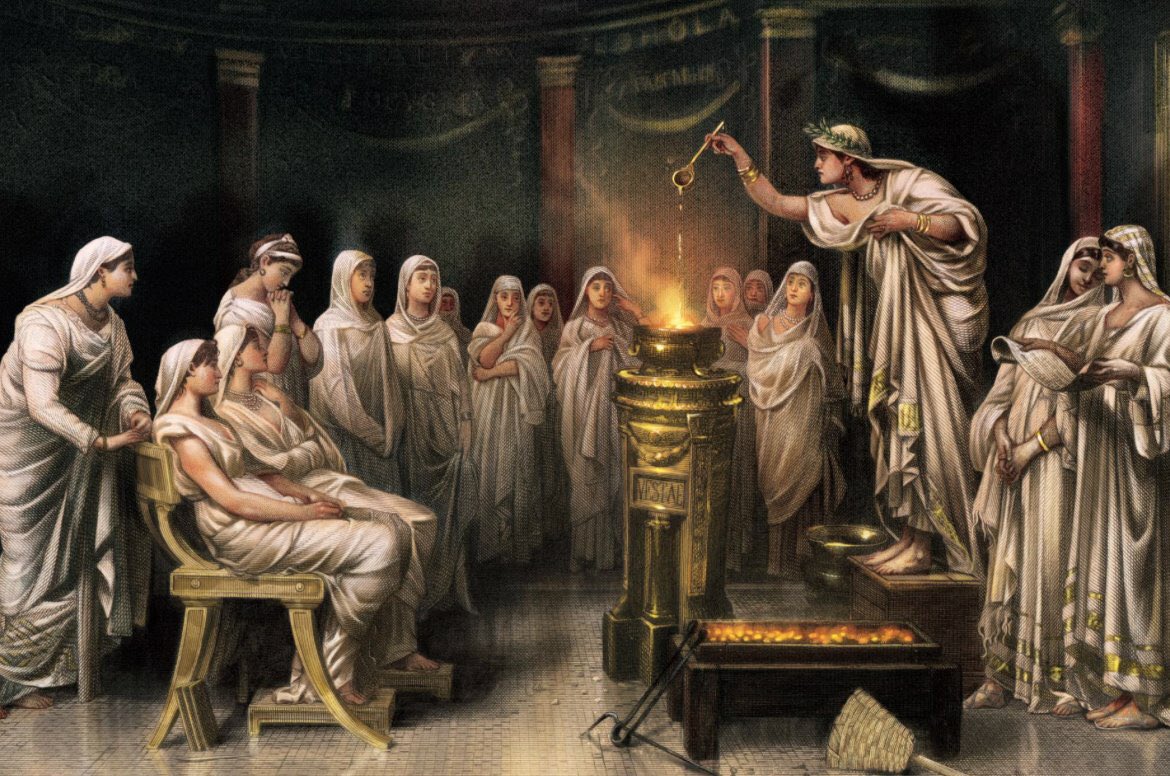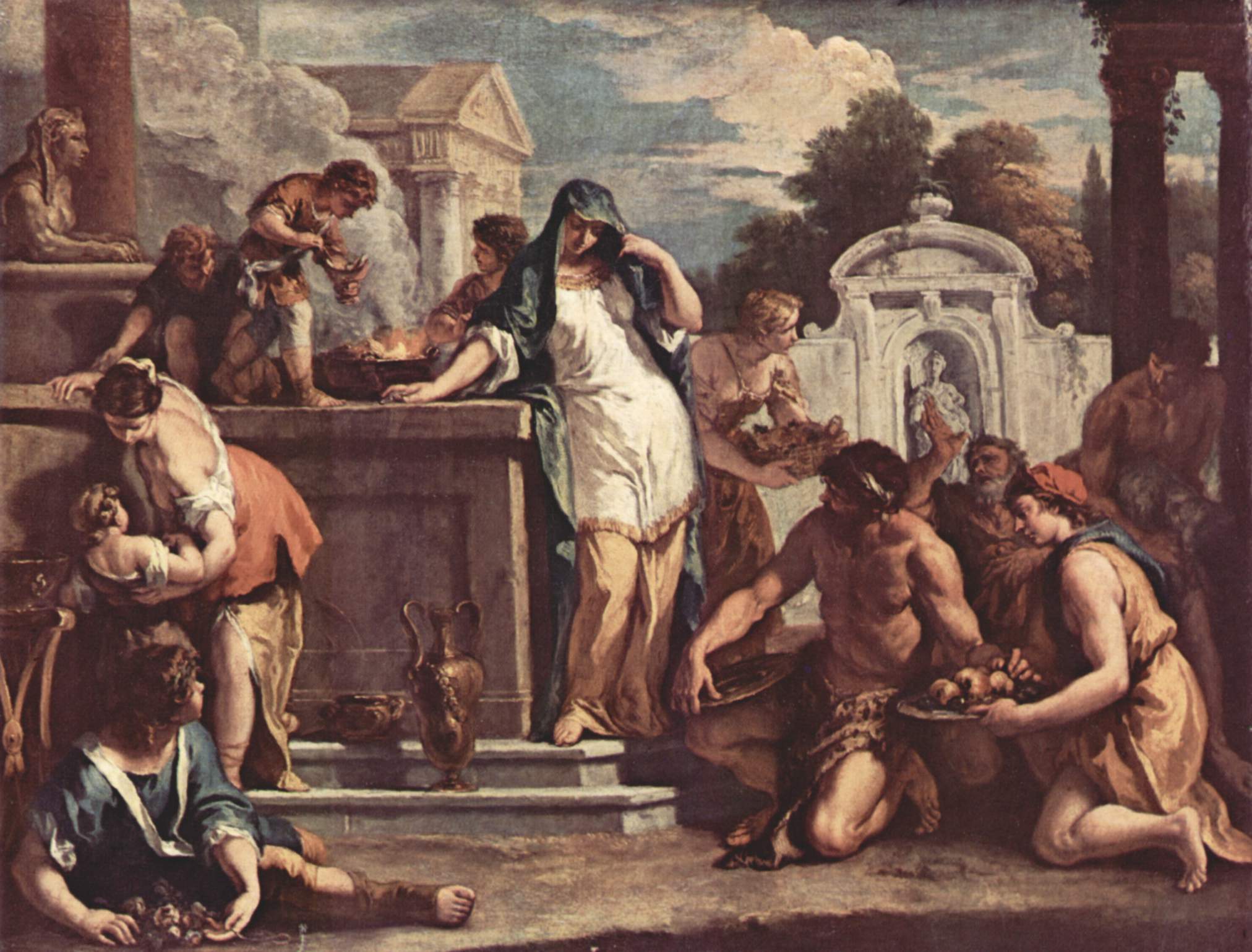The gods of roman mythology they are the product of a rich and complex culture, often invoked with great ceremonies, where sacrifices were provided, so that the people would receive virtues given by these deities, according to their powers and the requests of the citizens.

about mythology
Mythology is a collection of myths that are connected to a certain society or faith. Therefore, it is stated that ancient Rome was undeniably a culture, possessing a complex mythology, most of it inherited from its predecessors, the Greeks.
This fusion of cultures was used to describe and conceive the gods and philosophies that dominated the consciousness and behavior of the Roman people at the time.
In this sense, a large number of Roman gods and mythological characters are identified, the best known are those related to the Greek gods, integrated into Roman culture, in aspects that include: literature, art, religious life, myths and iconography. You can also know the gods of Buddhism, although for the moment we invite you to enjoy the description of these wonderful Roman characters.
Main gods of Roman mythology
At its roots, Roman mythology originated from the synthesis of ideas and legends, in the different societies that shaped ancient Rome. The first stories about the Roman gods are told that they dealt with issues more related to the historical theories about their foundation and unification as a people. The twelve main gods of Roman mythology are:
Jupiter
He is the equivalent of the Greek god Zeus, he was the son of Saturn and Ops. Known as the God of the sky, the light and the atmosphere and all the natural phenomena that were related to him, being his responsibilities: rain, storms and thunder. He is usually represented with the figure of a scepter, a thunderbolt or an eagle.
He was also popular for being the Father of all Gods, as well as the guardian of law, justice and truth.
The story tells that, after being saved by his mother, the goddess Ops, who was hiding him on the island of Crete, he overthrew his father in revenge for having devoured his brothers, thus reaching the throne. For reference, the main temple dedicated to Jupiter was built on the Capitoline Hill: the “Temple of Jupiter Optimus Maximus”, dating from approximately 509 BC
Juno
She is the divine equivalent of Hera in Greece, sister and also wife of the god Jupiter, therefore daughter of Saturn. She was known as the queen of the gods of Roman mythology and also protector of marriage, motherhood and home.
Her representative image shows her on a throne, with a diadem and a golden scepter. Juno was also the mother of Mars and Vulcan and alongside Jupiter, she was the head of the Roman pantheon, part of the triad and considered the Mother Goddess.
Volcano
His counterpart in Greece was Hephaestus, he is the deity of fires, volcanoes, fire and blacksmithing. He is the son of Jupiter and Juno, and also the husband of Venus, who was unfaithful to him with Mars; he is depicted as an old, lame, unattractive man.
His symbols are the anvil and the hammer. The myth says that when he was born deformed, Jupiter hurled him from the top of the heavens and when he hit the ground, he broke his leg.
To commemorate the Vulcan God, the Vulcanalia was held, a festival held on August 23, with sacrifices of fish and very small animals, thrown into the flames. Do you know which one is God of Fire Mesh? You can enter the link if you are interested in discovering it.
Diana
Artemis in Greek mythology, was known as the goddess of hunting, witchcraft, the moon and harmony, as well as being the guardian of rivers and springs. She was the daughter of Jupiter and Latona, also the twin sister of Phoebus.
The myth tells that Jupiter granted Diana the wish to remain chaste and never marry, in such a way that this goddess was invoked by virgin women who wanted to defend themselves from sexual abuse.
Diana was the intimate symbology of nature with man and the land, although she later became Goddess of the moon; her worship reflected chastity.
Phoebus
He is the equivalent of the Greek god Apollo, son of Jupiter and brother of Diana. Thus, beauty, painting, poetry, prophecy and medicine along with his lyre, bow and arrow represent him. The image of him is of a powerful, young, naked man.
Minerva
Counterpart of the Greek Athena. She guardian of Rome, recognized as the goddess of knowledge and science, as well as patron saint of artisans. She is the daughter of the God Jupiter and Metis. She is considered one of the three primary deities of the pantheon. Her helmet, shield, spear, olive tree and owl reflect her image.
It is said that she was an ally and right hand of her lord father Jupiter, so all the choices of her life were to achieve his will.
According to the sculptures or paintings of the time, the goddess Minerva has a quite simple appearance, a lot of elegance, courage, intellect and majesty; her image is that of a warrior with helmet and shield in hand, usually seen standing.
Venus
Aphrodite in Greece, is the goddess of affection, love, fertility, elegance and sex. She is the daughter of Uranus and wife of Vulcan, who was unfaithful to her with Mars, Adonis and Anchises. Her son is Cupid.
They represent it: the dove, the sword, the seashell and the apple of discord. In addition, her own figure reflects eroticism.
It is said that her attractiveness made many gods of Roman mythology want to claim her, including Jupiter, but Venus rejected them, which is why the latter punished her and made her the wife of Vulcan.
Pluto
Representative image in Roman mythology and counterpart of the Greek Hades, he was the son of Saturn and Ops, and therefore the brother of Jupiter and Neptune. Besides that, he was the husband of Proserpina.
It was characterized by being a well-known deity of the underworld, the dead and hell, representing death, which is why at funerals, he was asked to give peace to the deceased.
Neptuno
He was the divine counterpart of Poseidon in Greece. The god of oceans, horses, and earthquakes; the representation of him is the trident and the white horses. He was the firstborn of Saturn and Ops, therefore the brother of Jupiter.
The story around Neptune says that living sea creatures owed him homage and for this he was invoked by fishermen and sailors, to give them a good catch and calm the seas.
The myth explains that Neptune seized the bottom of the sea, taking it as his abode. There he formed an empire and a great fortress; with his trident he formed the waves of the sea and created springs that flowed where he wanted. When his wrath was provoked, he was capable of generating large and destructive earthquakes.
Mars
Called in Greece, Ares, he is considered the god of battle, wars, difficulties, courage and humanity. In the figure of him, he is shown as a warrior with a sword, a shield and a spear.
He is credited with the power to protect the army from its rivals and lead it to victory and that is why it was invoked by soldiers and warriors. The cult of him is joined by the belief that he protected young people above all, when they had difficulties or conflicts.
Mercury
Known as Mercurius, he is the equivalent of Hermes, in Greek mythology. He was one of the last gods to be adopted as a divinity. He was the son of Jupiter and Maya, identified by the Pegasus, the Caduceus and the winged sandals.
He was the god of commerce, the guardian of travelers and the guide on their routes. It is stated that the merchants invoked him to obtain greater income in his business.
He was commemorated in a festival known as Mercuralia, approximately held on May 15.
Worm
In Greek mythology, he is Dionysus, he has been considered the deity of wine and dance, as well as being the inspirer of delirium and ecstasy. He has also been depicted as an attractive young man, often holding a bottle of wine or a bunch of grapes. He was the son of Jupiter and a human woman named Semele.
Bacchus was invoked to increase grape harvests and thus obtain good wine, it has also been said that he was venerated above all by the women who sang, drank and had sexual relations in his name during his cult, because of this, debauchery and debauchery are attributed to him as virtues.
Other Gods of Roman Mythology
Roman mythology, in its beginnings, was a nurtured culture, but it lacked consistency in the origins of its deities and beliefs, which is why they looked like a collection of partially separate stories and without any continuity.
Over time, the primitive Roman myths evolved and were inspired by other ideas, mainly Greek mythology, to adapt them to their philosophies of faith.
In such a way that a more complex and nuanced historical structure of gods was formed, which resulted in the conception of two forms of gods, the say indigetes and novensiles.
Next, you will be able to find the details of these gods of Roman mythology in their two categories, although they are not perceived as main, but of historical importance for the Roman people:
Saturn: father of Jupiter and husband of Ops, known as the god of agriculture and the harvest. He is represented as an old man, often bent over, with a thick beard, and a sickle in his left hand. In honor of this god, "Los Saturnales" were held, a festivity, carried out approximately from December 17 to 24.
His myth reveals that Saturn was the youngest son and therefore should not reign, instead the king would be Titan, but the latter gave Saturn the authorization to rule, as long as he did not raise any children.
In this sense, Saturn fulfilled the promise; however, by marrying Ops he began to procreate many children, but in view of the vow he had made to his brother, he decided to eat them.
Hercules: It is the image of a demigod, son of Jupiter and Alcmene, equivalent to Heracles in Greek mythology. The cult of him values the twelve great works or works that he did, which guided him towards divinity.
Truths: corresponds to the true name of the goddess of truth in the ancient mythology of Rome, known for being the daughter of Saturn (the deity of the time) and also the mother of Virtus, who represented virtue.
Cupid: He is called the god of love, some interpretations say that he is the son of Venus (goddess of love, fertility and sex) and Mars (god of war and battles). He is depicted as a boy with wings, closed eyes, and an arrow. He is the equivalent of the Greek Eros.
Congratulations: Considered the goddess of achievement in Roman mythology, she was an identification of good luck and success related to wealth and fortune. She had a great positive link with faith and appeared on temples and coins, and even sailors and navigators invoked her because she, in her opinion, helped them have a smooth journey.
Rome: goddess who embodied the entire city of Rome, was distinguished by wearing a long dress and a helmet; the image of her is that of a woman seated in a position similar to the Greek Athena.
Earth Mater: the name of the Roman goddess of the Earth. The Romans invoked her to receive healthy crops and avoid natural disasters; she is depicted with clusters of flowers or fruit.
Security: she was the embodiment of a person's well-being and peace, she was the daughter of Disciplina and her sisters were Humanitas, Frugalitas and Auctoritas.
Nerio: In the ancient Roman faith, she was a goddess of battle and a symbol of bravery, associated with the goddess Minerva.
Faustites: She was responsible for defending herds and cattle. Mythology says that she walked along with Ceres through the farmlands to maintain their fertility and ensure successful harvests.
Ceres: It is the Roman symbology of the goddess of agriculture, her myth says that she taught farmers the secrets of planting and working the land, as well as grazing and making bread.
Dress: means fire and emotion. The goddess of the hearth as something sacred; her nature and her parents are uncertain.
Fortune: in the beginnings of the Roman faith it represented the vagaries of life and later it became an image of good luck.
Victoria: it represented the successes achieved by the soldiers against the enemies, in its name massive military parades were held.
The indigetes and the novensides
Since the beginning of time, fascinating legends have been part of universal history along with myths. So societies have been captivated by these facts, as is the case of Roman mythology. This was the product of the convergence of concepts and the plurality of cultures that formed the region of ancient Rome.
The gods of Roman mythology were worshiped until the Judeo-Christian faith existed. This is how they have had their roots within their own history and their society, however, also in the influence of other mythologies, such as the Greek and the Phoenician.
In this way, the Roman faith from which their gods derive, focused on a set of supernatural principles that changed over time, when they occupied the lands and integrated the theological or supernatural beliefs of the conquered cultures.
This is how the first stories of the gods of Roman mythology referred above all to the historical traditions about their foundation and consolidation as a people.
Ancient Roman ceremonial activities specifically differentiated two groups of original gods from the Roman state: The say indigetes, whose name and existence were suggested by the names of the oldest priests and by the festivals of the calendar.
These gods di indigetes show that the Roman people and their civilization were not only dedicated to planting, but were often equipped for battle or war. They had deities for all the common needs of existence, with rituals related to the different practices carried out by Roman society.
On the other hand, there are ninsides, which were later divinities whose cults were promoted to the city, during the historical period, typically on a known date and that was related to some specific situation of the moment.
In addition to the di indigetes, the early Roman deities included a number of so-called special gods whose names were invoked while performing various tasks, such as farming. These deities can be listed under the generic term of auxiliaries, or assisting gods, invoked along with the main deities.
In another aspect, there are the foreign gods that were created by the new lands appropriated by the Romans, since with the modern civilizations that were known, some deities also came to worship and were quickly accepted by them.
If you liked the content of this post; We cordially invite you to enjoy the following interesting topics:
